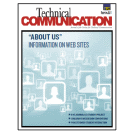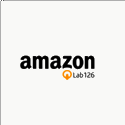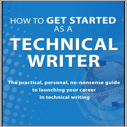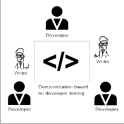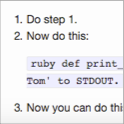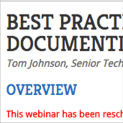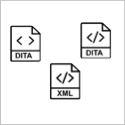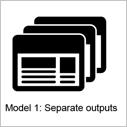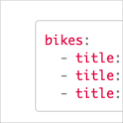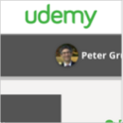The other week on Twitter I noted that, despite the power visuals play in communicating technical concepts, there's not a lot of good information out there on visual communication in the context of technical documentation. As a result, I'm starting a series focused on visual communication, somewhat like the series I wrote about API documentation. One benefit of publishing this info on a blog is that I can regularly publish small articles and benefit from widespread feedback to help me course-correct early and move towards more accurate information.
Ryan Weber, the Director of Business and Technical Writing at the University of Alabama in Huntsville, has a podcast called 10 Minute Tech Comm. In this podcast, he records short interviews with technical writing practitioners and innovators covering a wide variety of topics. Recently Ryan interviewed me for a podcast on API technical writing.
As I move into my new job, one goal I have is to learn from the experiences at my former job and improve this time around. I want to avoid repeating the same mistakes but also remember to build on those things that worked. This post is a retrospective look at the good and bad of previous experiences.
The following is a guest post by Marcia Riefer Johnston exploring an alternative view towards the RTFM argument. In this post, Marcia argues that it's the writer's care and interest in the product and users that leads to producing help content worth reading versus content that is mechanical, dry, and lifeless.
A recent article in the Technical Communication Journal explores lightweight DITA and the way it removes some of the complexity from the authoring process. Lightweight DITA is still in development, but it holds great promise in simplifying DITA and allowing authors to connect into larger systems for managing doc content without abandoning HTML.
I'm starting a new job at Amazon Lab126 in Sunnyvale, California this week. This past week I closed out the remaining projects, tasks, and other final details at 41st Parameter / Experian in preparation for the transition. This week I'll be in Seattle (where Amazon's headquarters are located) all week for training.
James Gill is working on the second edition of his book, How to Get Started As a Technical Writer. I contributed a questionnaire for a section that explores a day in the life of a technical writer. In addition to describing common tasks I do as a technical writer, I explain how I got started in technical writing, what I like best about technical writing, challenges and difficulties I face as a technical writer, future directions for technical writing, and more.
When deciding on the right tool to use for developer documentation, you have to evaluate just how much developers will be contributing and interacting with the documentation. In some scenarios, it will make sense to use developer tooling for docs to support more developer involvement. In other scenarios, it may be better to simply give developers a space where they can do brain dumps of technical info, but then to have tech writers edit, rewrite, and transition the content into tech writer tooling in order to handle more robust requirements.
Github Pages is a sweet service that builds your Jekyll site for you when you commit changes to a Github repo. If you were using redcarpet and Pygments, you now should switch to Kramdown and Rouge to stay updated with the recommended Markdown filter and syntax highlighter supported by Github Pages. Switching to Kramdown requires you to both update your configuration file and usually use 3 spaces when inserting code blocks within list items instead of 4.
Despite the dominance of WordPress as a web publishing platform, which is used for nearly 75 million websites today, WordPress has rarely been used by technical writers as a platform for publishing technical documentation. Some of the reasons WordPress is avoided is due to its heavy LAMP stack architecture, lack of component content re-use, and inability to publish multiple outputs such as PDF.
There are a couple of events on API documentation happening this Thursday. First, I'm giving an STC webinar on best practices for REST API documentation at 11am PST. Also, Andrew Fuchs is also presenting on API documentation at a Write the Docs meetup in Redwood City at 6:30pm PST.
If you want to manage your content in a system and take advantage of more robust documentation management, it seems like your content needs to be in DITA or XML for the system to parse and process it. Almost no component content management systems handle anything like Markdown or other unstructured content. This requirement will likely always push large teams toward DITA/XML.
When publishing different versions of content for different audiences, you can choose from among several single source publishing models: individual outputs, rights-based views, and dynamic filtering. Each option has challenges, however, and is not easy to pull off.
YAML is a format that is becoming a common way to store properties for configuring systems. I created a new tutorial on YAML that shows how mappings and lists work, and how you can use Jekyll and Liquid to parse through the YAML content.
Peter Gruenbaum's third API documentation course is now available on Udemy. This course covers topics in API documentation outside of reference material, such as tutorials and overview sections. This course will expose you to the many different needs in API documentation, and is a course I recommend even though it is briefer than Peter's other courses.






